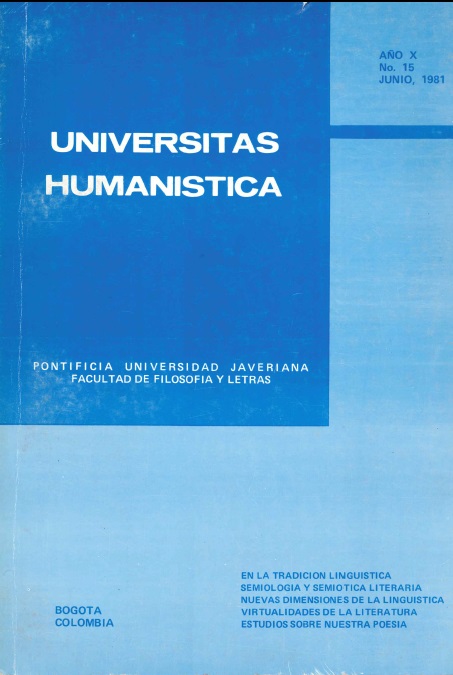Abstract
En "La Escuela de Praga" se recalca, ante todo, la importancia del análisis estructural que tiene como eje el rasgo distintivo. Por la claridad y rigurosidad del método, éste ha sido adoptado por varias disciplinas lingüísticas.
Reconoce su carácter antiatomístico y las fuentes saussurianas como punto de partida. Esboza la "Teoría de las oposiciones", aportación de esta Escuela; deslinda la Fonética de la Fonología. Y, partiendo de este deslinde, se ubican las realidades correspondientes hasta llegar a una definición del fonema; se presentan las oposiciones fonológicas trubetzkoyanas en el campo sincrónico y diacrónico; se enuncian los trabajos realizados en otros campos de la Lingüística, y por último se hace énfasis en el aporte de Jakobson, resaltando la importancia de su Escala Binaria, o "Escala de Jakobson".

This journal provides immediate open access to its content on the principle that making research freely available to the public, encourages greater global exchange of knowledge.
The journal Universitas Humanística is registered under a Creative Commons Attribution 4.0 International Public License. Thus, this work may be reproduced, distributed, and publicly shared in digital format, as long as the names of the authors and Pontificia Universidad Javeriana are acknowledged. Others are allowed to quote, adapt, transform, auto-archive, republish, and create based on this material, for any purpose (even commercial ones), provided the authorship is duly acknowledged, a link to the original work is provided, and it is specified if changes have been made. Pontificia Universidad Javeriana does not hold the rights of published works and the authors are solely responsible for the contents of their works; they keep the moral, intellectual, privacy, and publicity rights.
Approving the intervention of the work (review, copy-editing, translation, layout) and the following outreach, are granted through an use license and not through an assignment of rights. This means the journal and Pontificia Universidad Javeriana cannot be held responsible for any ethical malpractice by the authors. As a consequence of the protection granted by the use license, the journal is not required to publish recantations or modify information already published, unless the errata stems from the editorial management process. Publishing contents in this journal does not generate royalties for contributors.


